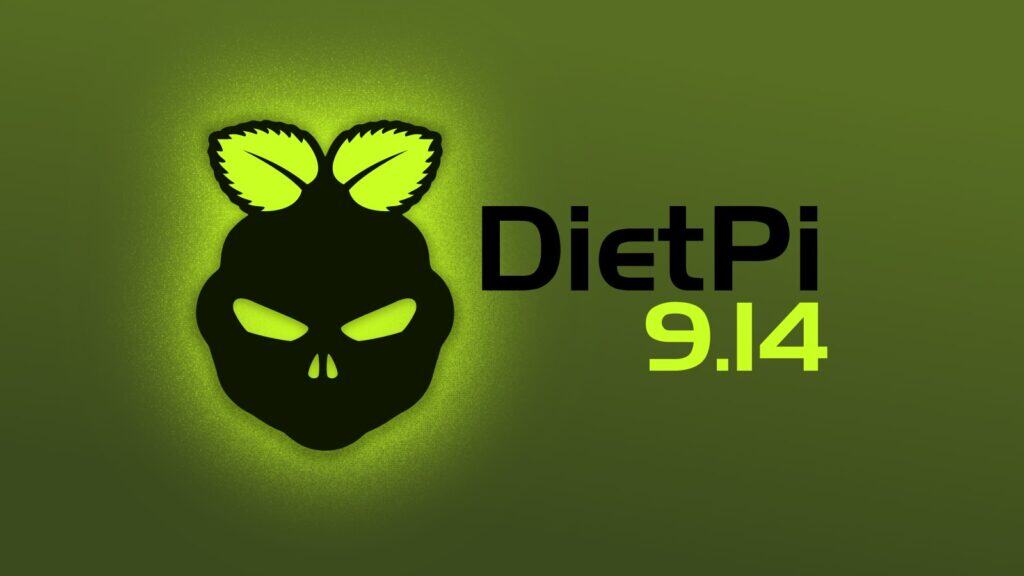Less than a month after the 9.13 release, DietPi, a lightweight Debian-based Linux distribution for SBCs (such as Raspberry Pi) and server systems with the option to install desktop environments, has just unveiled its latest iteration, version 9.14.
This release introduces official images for two new Orange Pi models:
- Orange Pi 5 Ultra – The upgraded sibling of the Orange Pi 5 now joins the DietPi family, boasting DDR5 RAM, WiFi 6E, 2.5 GbE Ethernet, an eMMC slot, and NVMe SSD support (up to 2280 size). Notably, it includes an HDMI input port, which is disabled by default but easily enabled via a device tree overlay.
- Orange Pi 5 Compute Module – Designed for flexibility, this module features an RK3588S SoC, 2-16GB DDR4 RAM, and 32-256MB eMMC storage, varying functionality based on the base board used. Early testing confirms compatibility with the Tablet Base Board, though users with other configurations are encouraged to share feedback.
Gaming enthusiasts will appreciate the addition of GZDoom, a modernized DOOM engine port supporting OpenGL and Vulkan. Known for its modding capabilities, GZDoom brings classic demon-slaying action to DietPi-powered devices. (Yes, it does run DOOM!)
Another key enhancement in this release includes:
- NanoPi R4S/R5S/R6S/R6C: Onboard Ethernet adapters now receive static MAC addresses, while the R4S/R5S benefit from a kernel patch improving LED trigger behavior (though network activity LEDs are now link-only).
- Orange Pi Zero 2W: Added udev rules to enable Ethernet LEDs on the official expansion board.
- SOQuartz: Kernel upgrades now include device trees for Blade and Model A base boards, though manual adjustments are still needed.
- Odroid HC4: Gets its own dedicated hardware ID and images, resolving USB and bootloader issues previously tied to shared Odroid C4 firmware.
- ARM SBCs: Several under-the-hood improvements, including raw initrd image support (phasing out legacy uInitrd) and better device tree overlay handling, paving the way for future dietpi-config enhancements.
On the bug fixes side, DietPi v9.14 brings:
- Allwinner H3: Fixed a boot failure issue with Linux 6.12 on older systems due to memory conflicts.
- Raspberry Pi: Resolved a hiccup where hardware-accelerated video codecs sometimes remained disabled despite being toggled in dietpi-config.
- ROCK64: Addressed boot failures linked to outdated U-Boot versions on SPI storage.
- Software Fixes: Patches for X11, Home Assistant, Chromium (ARM hardware acceleration), and Deluge (Python 3.11 compatibility) ensure smoother operation.
Refer to the release announcement for a detailed overview of all changes. Downloads are available here.
